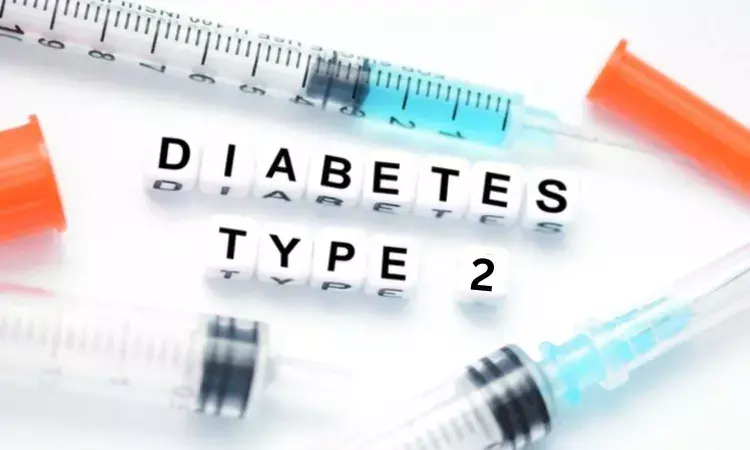- Home
- Medical news & Guidelines
- Anesthesiology
- Cardiology and CTVS
- Critical Care
- Dentistry
- Dermatology
- Diabetes and Endocrinology
- ENT
- Gastroenterology
- Medicine
- Nephrology
- Neurology
- Obstretics-Gynaecology
- Oncology
- Ophthalmology
- Orthopaedics
- Pediatrics-Neonatology
- Psychiatry
- Pulmonology
- Radiology
- Surgery
- Urology
- Laboratory Medicine
- Diet
- Nursing
- Paramedical
- Physiotherapy
- Health news
- Fact Check
- Bone Health Fact Check
- Brain Health Fact Check
- Cancer Related Fact Check
- Child Care Fact Check
- Dental and oral health fact check
- Diabetes and metabolic health fact check
- Diet and Nutrition Fact Check
- Eye and ENT Care Fact Check
- Fitness fact check
- Gut health fact check
- Heart health fact check
- Kidney health fact check
- Medical education fact check
- Men's health fact check
- Respiratory fact check
- Skin and hair care fact check
- Vaccine and Immunization fact check
- Women's health fact check
- AYUSH
- State News
- Andaman and Nicobar Islands
- Andhra Pradesh
- Arunachal Pradesh
- Assam
- Bihar
- Chandigarh
- Chattisgarh
- Dadra and Nagar Haveli
- Daman and Diu
- Delhi
- Goa
- Gujarat
- Haryana
- Himachal Pradesh
- Jammu & Kashmir
- Jharkhand
- Karnataka
- Kerala
- Ladakh
- Lakshadweep
- Madhya Pradesh
- Maharashtra
- Manipur
- Meghalaya
- Mizoram
- Nagaland
- Odisha
- Puducherry
- Punjab
- Rajasthan
- Sikkim
- Tamil Nadu
- Telangana
- Tripura
- Uttar Pradesh
- Uttrakhand
- West Bengal
- Medical Education
- Industry
High-dose tadalafil reduced long-term blood sugar in type 2 diabetes patients: Pilot study

Sweden: High-dose tadalafil, a medication used to treat erectile dysfunction, significantly improved long-term blood sugar levels in a small group of patients with type 2 diabetes, according to a recent study in eClinicalMedicine.
Tadalafil is one of the active pharmaceutical substances known as PDE5 (phosphodiesterase type 5) inhibitors, including the well-known drug Viagra. PDE5 inhibitors are used to treat impotence or erectile dysfunction (ED).
The result from the University of Gothenburg pilot study is striking, but repetition in a larger study and over a longer period is needed. "High-dose tadalafil is moderately well tolerated, warranting larger trials to define the optimal treatment regimen in type 2 diabetes," the researchers wrote.
“Self-medication with PDE5 inhibitors must never occur because, at worst, it can be life-threatening in combination with certain other drugs. These medicines are available on prescription only and must always be prescribed by the attending physician,” says Per-Anders Jansson, professor at Sahlgrenska Academy, University of Gothenburg.
Unlike the other three PDE5 inhibitors approved in Sweden, tadalafil is long-acting and can be prescribed as a daily dose.
Insulin sensitivity unaffected
The study comprised 18 participants, 12 men and 6 postmenopausal women. In this randomized, double-blind placebo-controlled study, they were all first assigned by random selection to receive either a high daily dose (20 mg) of the active substance tadalafil or a placebo for six weeks. After an eight-week break, they were then given the other option for six weeks. The study participants thus served as their own controls. Since tadalafil has a number of known side effects (including headache, heartburn, diarrhea, muscle and back pain, low blood pressure, nasal congestion, tinnitus, and blurred vision), they were closely monitored.
The results of the study, which was conducted in collaboration with Sahlgrenska University Hospital, are published in the journal eClinicalMedicine. The primary aim was to investigate whether tadalafil might enhance the patients’ insulin sensitivity. In this respect, however, there was no discernible difference compared with the placebo. On the other hand, tadalafil caused a clear improvement in metabolic control, based on measurements of haemoglobin A1c (HbA1c) in blood samples. On average, the level of HbA1c fell by 2.50 mmol/mol.
“That’s a very distinct improvement in the long-term sugar levels, which we couldn’t have dreamed of after only six weeks of supplementary treatment in patients with well-controlled type 2 diabetes. This improvement in blood sugar is on par with what we’ve seen with new drug candidates that are now the fourth treatment option for type 2 diabetes,” says Jansson, who led the research.
“The HbA1c level is precisely monitored in blood samples from patients undergoing treatment for type 2 diabetes. The higher the HbA1c value, the greater the risk of complications, including microvascular damage to the eyes, kidneys and nerves,” Jansson says.
Better blood flow, liver values and metabolism
Tadalafil has potential as a supplement to the treatment currently given for type 2 diabetes, especially for men who also have ED. Over 70 percent of men with obesity and type 2 diabetes develop ED. However, the results from the pilot study need to be repeated in a larger study where more patients are treated for a longer period of time, which the University of Gothenburg research group is now considering. The current primary treatment for type 2 diabetes combines lifestyle changes with metformin. In the past 10 to 20 years, several other new drugs have also been developed.
Tadalafil increases blood flow in skeletal muscle, heart and adipose tissue. This present study also shows increased blood flow and a favorable effect in the liver, where an established marker of fatty liver decreased during the drug treatment, compared with the placebo. In addition, the researchers saw an increase in glucose uptake with the tadalafil treatment compared with the placebo.
Reference:
Emanuel Fryk, Vagner Ramon Rodrigues Silva, Marco Bauzá-Thorbrügge, Martin Schmelz, Li-Ming Gan, Lena Strindberg, Published:May 03, 2023DOI:https://doi.org/10.1016/j.eclinm.2023.101985.
Dr Kamal Kant Kohli-MBBS, DTCD- a chest specialist with more than 30 years of practice and a flair for writing clinical articles, Dr Kamal Kant Kohli joined Medical Dialogues as a Chief Editor of Medical News. Besides writing articles, as an editor, he proofreads and verifies all the medical content published on Medical Dialogues including those coming from journals, studies,medical conferences,guidelines etc. Email: drkohli@medicaldialogues.in. Contact no. 011-43720751


